LA FERME IMPOSSIBLE
|
LA FERME IMPOSSIBLE |
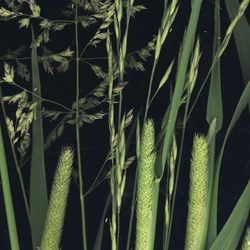 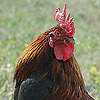 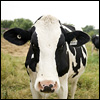 |
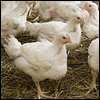  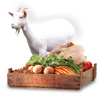 |
MILITANTISME |
|||
LA FERME IMPOSSIBLE
25$ pour une copie du livre dédicacée et postée à une adresse québécoise. |
AGRICULTURE ARTISANALE
Cette appellation d'origine collective représente bien les positions et les demandes actuelles des protagonistes d'En Pleine Gueule, Amélie Dion et Dominic Lamontagne. Découvrez-la sur agricultureartisanale.org
|
CROQUIS Croquis d'une ferme possible |
|
| actualités |
 photo: Magali Ouellet |
DOMINIC LAMONTAGNE : En 1997, il fonde avec un ami l'entreprise Günt Multimédia qu'il quitte en 2003 pour créer avec sa compagne, Amélie Dion, une entreprise spécialisée dans les repas sous vide, Gastronomie Le Naked Lunch. Peu après, le couple acquiert pignon sur rue en ouvrant un bistro rue Wellington à Montréal. Le Naked Lunch est reconnu pour son smoked meat de magret de canard et ses conserves haut de gamme faites maison. L'aventure se termine en 2012, lorsque la famille délaisse la frénésie de la métropole pour s'installer à Sainte-Lucie-des-Laurentides, à la recherche d'un peu plus d'authenticité. Elle lance alors EN PLEINE GUEULE, entreprise luciloise vouée à la promotion de l'autonomie alimentaire et de la gastronomie responsable. Dominic et Amélie désirent aujourd'hui redonner à tous la possibilité et le goût de pratiquer une agriculture locale à dimension humaine. |
 |
JOEL SALATIN : Élu par le TIME magazine comme l'un des plus grands agriculteurs innovateurs au monde, Joel Salatin est devenu une grande référence de l'agriculture de régénération. Fermier innovant et créatif, il a fait de la biomimicrie (imitation des procédés ou évènements naturels) un atout majeur.
Joel est une personne atypique et une force de la nature, un exemple d'un pionnier qui de presque rien a construit une belle entreprise profitable sans quelconque aide financière. Il défend avec ferveur le monde agricole et son importance en inspirant les jeunes agriculteurs à changer leur regard sur la fonction agraire. «Nous devons arrêter cette mentalité incessante de victime où quelqu'un d'autre devra réparer ce qui a été détruit, ou quelqu'un d'autre doive me rendre heureux ou que je doive ma santé à quelqu'un d'autre. Tout ceci est de notre responsabilité, pas de celle du voisin ou du gouvernement, de l'église ou autre.» Joel Salatin habite et travaille avec sa famille, dans la vallée de la Shenandoah au pied du massif des Appalaches, sur sa ferme de 200 hectares baptisée "Polyface Farm". Il est issue de la 3e génération d'agriculteurs à travailler cette terre. La ferme Polyface des Salatin, une ferme d'animaux nourris à l'herbe biologique, dessert plus de 4 000 familles, 10 points de vente et 50 restaurants grâce à la vente à la ferme et aux groupes d'achat initiés par la PolyFace.Il est également l'auteur de neuf livres, y compris les bestseller Folks, this Aint Normal, You Can Farm et Salad Bar Beef. Joel écrit aussi abondamment dans des magazines comme Stockman Grass Farmer, Acres USA, et American Agriculture. ( sources: Agriculture de conservation et Mycélium )» Il signe en 2015 la préface de «La ferme impossible», disponible dans sa version originale anglaise ci-dessous. |